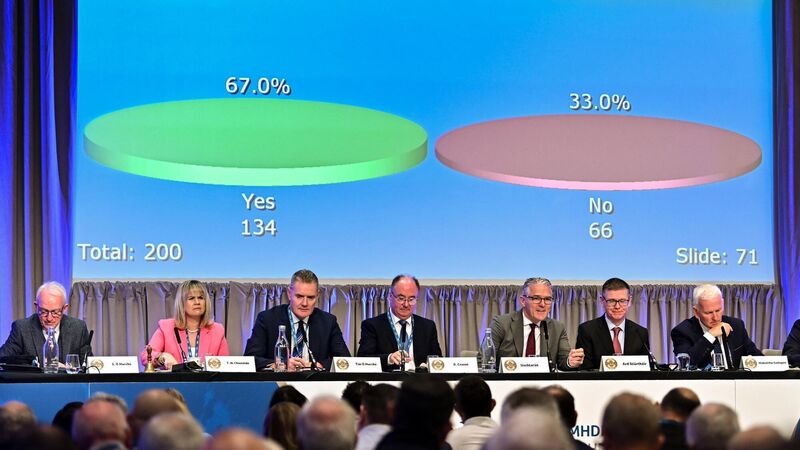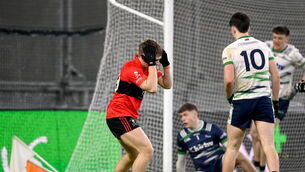'It was high time to introduce integrity to timekeeping' - Special Congress back clock-hooter

The result of the voting on motions 55-56 regarding the public clock and hooter is shown on a big screen. Pic: Piaras Ó Mídheach/Sportsfile.
The clock-hooter was Colm Collins’s baby. When a question about it was asked, his smiling Football Review Committee (FRC) colleagues were quick to let the former Clare manager field it.
On Saturday, just over two-thirds (67%) of Special Congress backed its introduction on a permanent basis, 7% or roughly 16 delegates more than was required for it pass. In contrast, the other 15 votes all received over 90% support.











